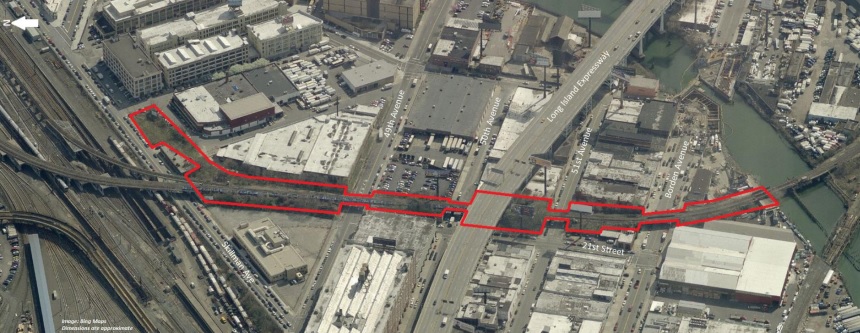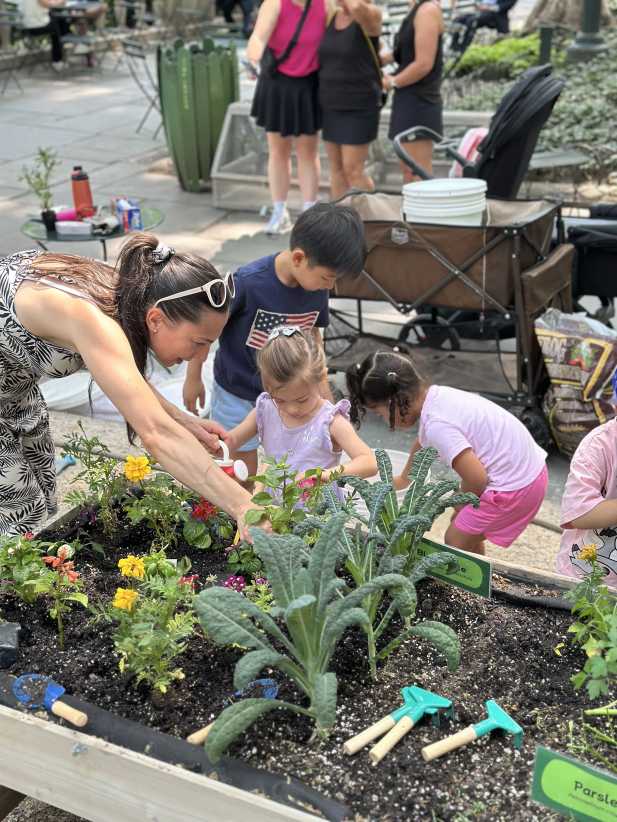In a neighborhood known for its industrial feel and growing number of towers, Long Island City’s Smiling Hogshead Ranch, with the help of other community groups, is trying to preserve its vision for an urban garden as a community organizing tool.
The group is fighting to maintain not only its vision, but also the land it operates on. The all-volunteer group has transformed an abandoned portion of the 4.3-acre parcel of land known as the Montauk Cutoff, which stretches from 49th to Borden Avenues. Located at 25-30 Skillman Ave., the nonprofit has a year-to-year lease agreement with the Metropolitan Transportation Authority (MTA) to operate the land.
It was previously used to connect freight trains running on the LIRR Lower Montauk branch to the Arch Street Freight Yard on Jackson Avenue. In March 2015, the rail line was decommissioned and the MTA is asking groups to submit a Request for Expressions of Interest (RFEI).
The urban garden, started in 2011 as a guerrilla garden ― they did not ask the Metropolitan Transportation Authority for permission to use the land ― also provides tours for students, live productions, performance art, yoga, flow arts and more, according to President Gil Lopez. Smiling Hogshead Ranch’s main mission, and one they hope to continue for years to come, includes educating the public about urban ecology.
“We want to continue to involve students and the general public and [educate them] about the urban ecology that they are a part of,” Lopez said. “[We want] cities to experience where their food comes from…all these things that are so far removed from our urban environment, [we want to] put them back, smack dab in the middle and interact with those things.”
Lopez is working with dozens of other organizations as part of the Cutoff Coalition to put together an RFEI and a clear vision for the parcel of land. The LIC partnership, Newtown Creek Alliance, professors from LaGuardia Community College, members of Community Board 2, the LIC boathouse, HarborLAB and the North Brooklyn Boat Club are just a few organizations partnering with Smiling Hogshead Ranch.
These partnerships are “organic,” according to Lopez, and the nonprofit has already worked with these community groups for student tours, workshops and other events. The groups have met once a month since October and envision several uses for the land, including building several small modular structures to house a tool lending library and a worker co-op space.
The groups are also emphasizing the idea of green infrastructure to promote the capture of stormwater and lowering sewage overflow, which has been a “persistent environmental problem that New York City faces,” Lopez said. Smiling Hogshead Ranch will also look to expand its urban gardening program and utilize renewable energy options for a site that currently has no electricity or running water.
The group first heard about the MTA’s plan to decommission the rail line in October and has been scrambling to meet the agency’s Feb. 26 deadline to submit the RFEI. Lopez said the Cutoff Coalition feels they have a strong chance to be chosen by the MTA. He hopes that the agency, a public benefit corporation, picks an RFEI that benefits the community rather than one that makes a profit for the MTA.
“We’ve actually inspired them to do something else rather than put a fence around their land and let weeds grow around it,” Lopez said. “We also fear the whole process of money making here. We want to emphasize the idea of putting public over profit.”
The MTA is looking for self-sufficient groups to run the adaptive reuse concept plan, including maintenance and upkeep of the site. The agency will not sell the land so it preserves a right-of-way in case they need to use the land in the future.
Once an RFEI is chosen, the MTA will potentially call for a Request for Proposal. The MTA can also choose to fence off the property until they decide to use it again.
Lopez said the group is past the “big visioning area” and is now looking for letters of support from local politicians, community groups and financial letters of support from the City Council and possibly Borough President Melinda Katz.




































